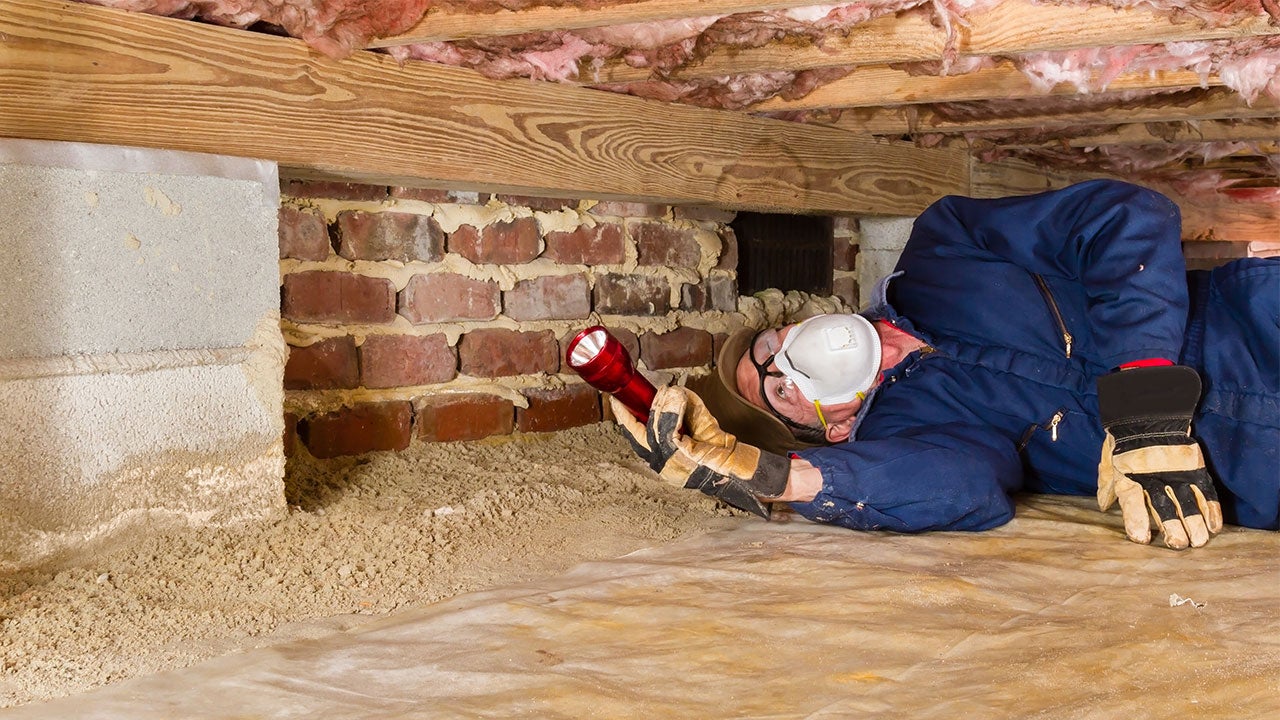Spring cleaning checklist: home maintenance projects to tackle

Spring represents a time of renewal — and the traditional time to clean house. While you’re washing windows and emptying closets, don’t neglect your home’s internal systems and external features. Here is a spring cleaning checklist of home maintenance projects to repair winter’s ravages on your residence, and get it shipshape for warmer weather.
Spring cleaning project 1: See what condition your air conditioning is in
Your air conditioner will be on active duty come summer. Some simple tasks you might be able to do yourself—clean the air filters, clear away any foliage from the condenser—but it’s often best to hire a professional to do an annual inspection. They’ll ensure the AC operates in peak condition, it’s clean, and it’s saving you money on energy bills. Generally, expect to spend between $50 to $200 on the checkup, depending on your area, according to contractor search service Angi.
Moreover, as you focus on cleaning your AC, don’t forget the air ducts — vital to breathing cleaner air and avoiding allergy problems. Getting your ducts in a row can be expensive: a thorough cleaning job averages $376, according to HomeAdvisor. However, the cool air coming through will fill the room better, allowing for improved comfort and better efficiency.
Spring cleaning project 2: Walk the walkways
Sidewalks, driveways, and walkways take a beating during the winter months. Both the elements and the salt to protect against them can create cracks, holes, buckling or sinking that can be damaging to both the entry point and to people (if they trip and fall). So inspect these areas with an eagle eye. You can make minor fixes for a few hundred dollars; more extensive repairs or restoration projects can run you over $5,000, depending on the type of surface, according to HomeAdvisor.
Spring cleaning project 3: Prepare your yard
Do a visual inspection of your home’s backyard, cleaning up any leaves or fallen branches. Turn your outside faucets back on, testing them for damage or leaks; you might also put sprinklers through their paces too.
You can also take this time to reseed your lawn, paying careful attention to find and cover the bald spots left by snow and ice. The spring thaw also marks an opportune time to lay fresh mulch in flower beds, protecting them from weeds. Lastly, get out your lawn mower and do a tune-up: Lawnmowers usually need one per year.
All told, yardwork won’t cost you more than a few hundred dollars to do.
Spring cleaning project 4: De-gunk your gutters
Examine your gutters from end to end. They typically need cleaning twice a year, and this is an ideal time, as snow-, sleet-, and ice storms are notorious for clogging gutters and downspouts with dirt and debris — which, if unchecked, can incur water damage inside the home and to the roof. Make sure any gutter guards and extensions are intact too. If you’ve a head for heights, you can probably clean gutters yourself; otherwise, it’ll run from $120 to $220 for a pro to do it.
Spring cleaning project 5: Hit the roof
While you’re up there with the gutters, have a look at your roof too. Even if it’s fairly new, the winter elements can do a number on it, especially if the gutters get clogged (compromised gutters let moisture accumulate on the roof, which can lead to roof rot). Pay close attention to any signs of peeling, warping, or missing shingles; cracked flashing (the metal strip that creates a water-resistant barrier between joints); and leaks, especially around skylights.
For repairs, you’ll probably need a professional roofer, whose charges run $45 to $75 per hour, according to HomeAdvisor. But if you just want to clean stained or moldy-looking shingles, you could try it yourself, using non-corrosive products that are environmentally safe.
Choose a day that’s overcast with minimal wind — that way your neighbors don’t share in your cleaning. First saturate the shingles with the cleaning solution, then blast the crud away using a roof rinsing tool. Finally, spray on a coating of stain-blocking solution.
Spring cleaning project 6: Hit the deck
Odds are, you haven’t set foot on your deck since late autumn. Now, as the weather warms up, look for signs of damage, such as loose nails, broken bricks, warped planks or cracked wood.
Assuming all’s in good shape, the deck could still use a cleaning, which you can do. First, remove the winter film accumulated on it with a thorough sweeping. Then, hose it down with water and a cleaning solution. Allow the solution to sit for 10 to 15 minutes, scrub the deck with your broom and rinse. Treat the wood (if applicable) with borate. After allowing it to dry for several days, you can stain and seal it.
Spring cleaning project 7: Hose down your home
The sides of your house accumulate dirt, grime, salt, and much more during the winter months. Giving a home a thorough bath improves its appearance and prevents winter’s remnants from damaging its siding.
Find a spring cleaning kit at your local hardware store and attach it to your hose. Make sure your home’s windows and doors are firmly closed before spraying. Be careful to avoid having the cleaning detergent fraternizing with your flowers, as it can damage them.
Once the house exterior is clean, you can see if it could use a new paint job.
Spring cleaning project 8: Test home emergency equipment
This fix isn’t seasonally-related, but if you’re in inspect-and-repair mode, you might as well check out your smoke and carbon monoxide detectors. Swap out the batteries for fresh ones, if you haven’t done so in over a year. And if you haven’t these devices, seriously consider getting them. You may even get a break on your homeowners insurance, especially if they’re some of the newer “smart” systems.
Also, take this time to examine your fire extinguisher. If you don’t have one, you can get one for between $20-$40. And once you have one, you’ll want to inspect at least once a year. Ensure the locking pin is in place, the tamper seal is clean, and there are no visual signs of damage. Because an emergency is no time to discover a problem.
Learn more:
You may also like

Home warranty vs. homeowners insurance

How to secure your home on a budget

What do home inspectors look for? 6 key things

12 Steps to prepare your home for winter


